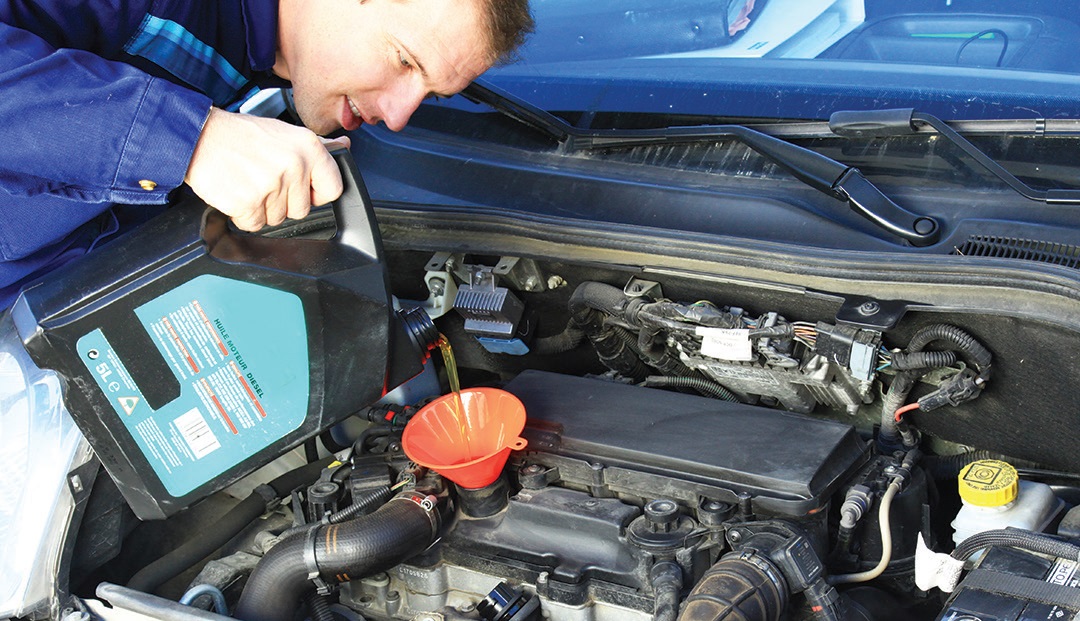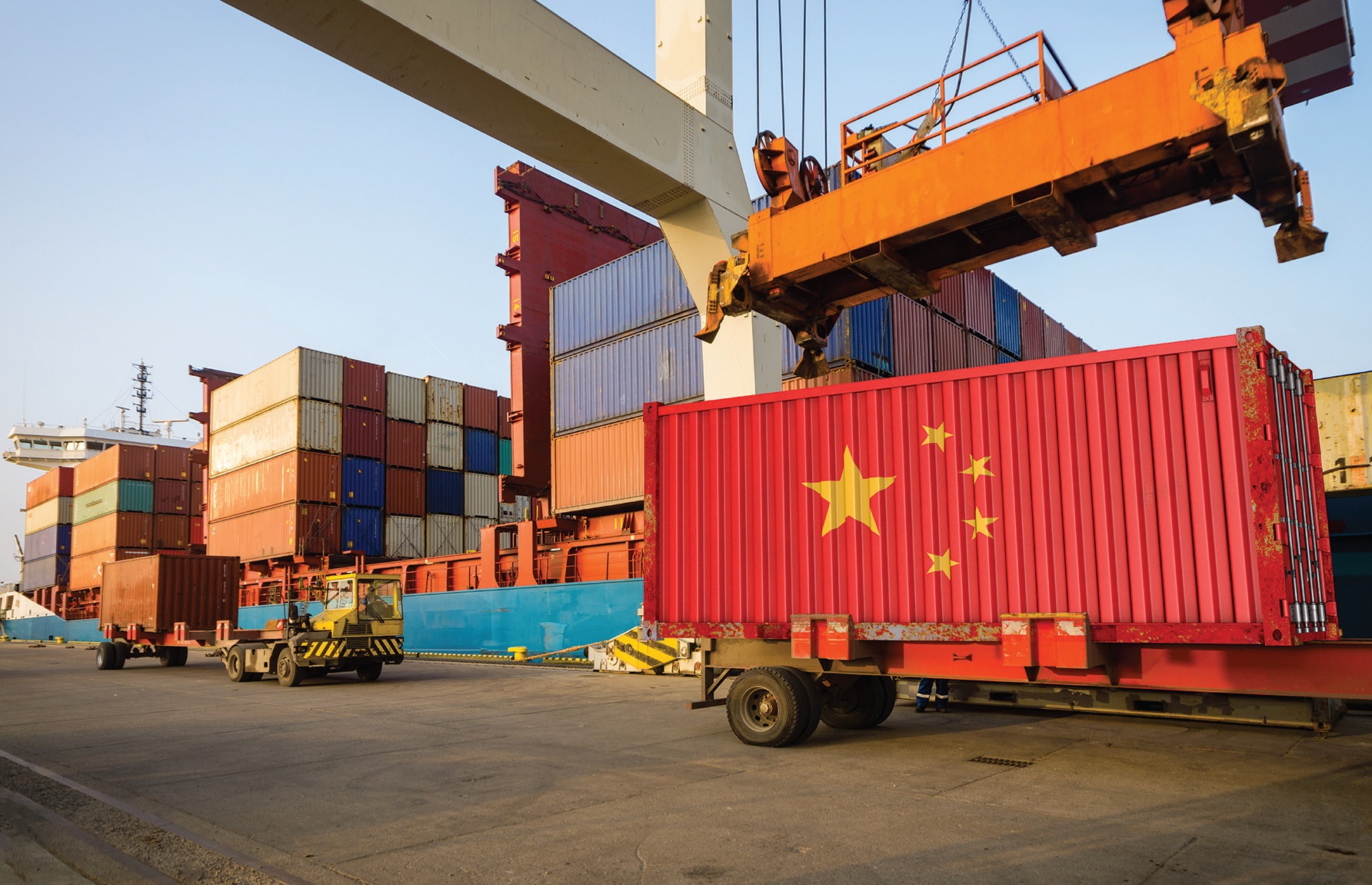Executive Summary
Will the world be able to adapt to changes during and after the COVID-19 pandemic? Many industries are facing challenges during this time, including the tribology and lubricants business sector, as evident by the overwhelming number of responses we received in this special TLT survey on how the health crisis has adversely affected STLE members globally who work in academia, government and industry. Health and safety concerns have risen to the forefront as the tribology and lubrication field tries to figure out best practices for operating under these challenging times. STLE is aware that members are finding ways to determine how to safely perform work whether it be in a laboratory, manufacturing facility or an office environment. Members have been forced to change their operating hours, cannot access their laboratories, are working from home offices and are even being furloughed. Global supply chains have shifted, and in some cases, severed, leaving companies searching for needed raw materials to manufacture finished lubricants and greases. No one knows how long the COVID-19 pandemic will last, nor its lasting effects. TLT will be right here closely monitoring developments and will provide timely information and resources to help industry professionals get through this difficult period.
Q.1. What challenges are your company currently experiencing as a result of COVID-19?
Local government limiting the ability of personnel to report to the office is impacting the ability to manufacture and ship products. It’s slowing down R&D activities as well.
We cannot visit customer sites.
Low demand.
Production has decreased by half. R&D center shutdown.
Managing remote work for employees that have never done so before. Reduced product demand due to work from home restrictions.
Orders have been put on hold.
No sales due to shut down and the supply chain if constrained.
Reduced sales. Payment delays.
Everything. Travel ban. Customers shutting down. Employees afraid to go to work. Cancellations of meetings and conferences. Raw material supply disruptions. Oil prices dropping.
Currently no issues; supply of incoming raw materials is uninterrupted. We are deemed an essential supplier, so we have been doing our normal business, if you can call it that.
Reduced staff on site. Limited ability to do R&D work.
We made as many people as we could work from home (about 25% of our workforce). They are finding some difficulties in communication, but we have increased our use of IM apps and virtual meetings.
It was a seamless transition to work from home. No disruptions whatsoever. Forecasting for the current conditions are a moving target and requiring additional focus.
Low stock prices and deleterious effect on general sales.
Keeping our plants virus-free so we can continue production.
Supply chain disruptions and lack of demand for final products.
Lubricant samples submitted to our lab have slowed to a crawl. Most of our workforce is working from home, and we aren’t quite sure how to optimize their contribution. Some employees have poor web connectivity at home, and this is impacting videoconferencing.
Many plants are shut down or cut back. Sales reps having to work from home makes it difficult to conduct business. Company has cut our pay 40%-45%.
The biggest challenge is adapting to an ever-changing environment. We are an essential business since we distribute lubricants and petroleum products. Unfortunately, a large portion of our footprint has seen a significant downturn or even a shutdown to the automotive industry. Simply put, people are not driving and, therefore, aren’t using our products. Commercial vehicles and most construction sectors are still operating, and thankfully we have demand in that sector. The industrial/manufacturing sectors are hit or miss. Some have shut down plants or moved to a skeleton crew while other plants have stopped production completely. There are certain segments of the market still operating as normal, but not above normal, which is not making up for the losses.
My main challenge is the current impossibility to travel to my plant.
Changing some of our lube blending equipment to make disinfectants and sanitizers.
No personal business contact. All communication is being done over the phone, text or via email.
Just everyday business slowing things down. All employees taking extra precautions has an impact on productivity and the bottom line.
All outside sales personnel of finished lubricants and fuel are working from home. We are required to have manager approval to go to a customer’s location for any reason. Oil and gas industry customers are very worried about what the economic recovery will look like.
Most of our issues are related to customer and employee fear. Unsubstantiated rumors run wild and take much effort to confirm or deny. Unsubstantiated fear is an awful phenomenon to fight. Finally, folks grow weary and simply give in to their fears.
Revenue decreases due to customer shutdowns. Balancing our ability to keep employees and still be able to work.

At our university, switching to online classes in engineering is very challenging, and many problems remain unsolved. Experimental research, tribology included, has completely halted.
Keeping contact with customers. Development projects have been put on hold as R&D staff splits their time between the lab and home. I now have a Zoom account to meet face to face at a distance.
Continuing to operate as an essential business while employees are maintaining social distancing in labs, and not having access to masks since there are none available to order. Keeping those groups working from home or fragmented across home and work locations, working together cohesively and productively.
Future travel to visit client facilities is likely to be affected. Funding available for consulting work might be reduced, but much of my work can be done from home or by using online conferencing.
Decreased office staff in the actual office; many are working from home, but work is more difficult to do outside of the office. Sales staff have been limited greatly. Many customers are not allowing them on site, and cold calls are not acceptable during this pandemic.
As a lubricants and fuel sales company, sales have been a challenge. Many customers are not allowing sales team members entrance in their facilities. Deliveries are relatively normal. The other concern is safety for our drivers. We need to make the deliveries but don’t want to put them at risk. Customers also are looking to us for other products like sanitizers.

Loss of productivity and customers. Delay in receivables.
Sales have declined a bit, but we are continuing to operate in the black. We are concerned about the availability of castor oil derivatives for grease manufacture. The supply of other raw materials might become short if the lockdowns in certain countries continue for extended time periods. Base oil supply has not been an issue so far, but the news has included word of reduced refinery runs and even refinery shutdowns due to the drop in fuel demand. If base oil refineries reduce runs or temporarily close, the supply of certain base oils might become tight.
Sales have decreased.

Just a slight slowdown in ongoing projects related to limits on outside contractors and staffing.
We cannot go out on field trips to assess failures and visit sites to examine faulty lubrication or machines or take oil samples. No oil test laboratories are open or materials testing labs, and we cannot test. There are no commercial jet flights between cities in South Africa, so we cannot travel to geographical locations where our client factories are located. Many client factories or process plants are closed. Raw material suppliers are frozen because they come from one single location where, in fact, there should be multiple independent additive, raw material and chemical manufacturers and global giants discouraged. Thus, we earn no fee income and will have no fee income for 12-14 weeks.
I am retired. I attempt to sell technical computer programs. Basically I have no challenges.
As far as lubricants sales: None. As far as fuel sales: Yes.
To make sure our operation in the lab can continue even if somebody would be infected by the virus. Therefore, we work in two separated shifts. We never know how many oil samples will come to the lab each day, so that makes the planning difficult. Promoting new things like APP, etc., is impossible as nobody has the patience for this kind of stuff right now.
Uncertainty on how the pandemic will develop in time. Difficulties for planning ahead.
Being able to provide all the services my university offers to our students while the campus is closed.
The university I work at is shut down, and I’ve been furloughed. Also, major oil companies are pulling back research money.
Unable to supply products and services.
Protection of our employees and practicing social distancing.
Office staff is working remotely. Lab and plant are operating.
Lost revenue due to numerous customers that are currently shut down or will likely face bankruptcy.
All construction projects in Zambia are not operating to capacity, hence, there in no business for my company.
Current low oil price; massive cost cutting efforts underway. Many lab-based people now working from home with potentially not much to do after current reporting/training completed.
None so far, just keeping the distance and keeping hands clean as possible.
All shop activities stopped, and it can’t go on forever. We cannot live in virtual reality for too long.
Trying to do everything possible to keep people safe. Because we are a small but essential business, we cannot afford to shut down because our people get sick.
A mix of onsite and offsite workforce attempting to efficiently communicate.
Major projects have been cancelled until 2021.
Protection of our workforce in the lab and manufacturing operations. We are finishing a plant expansion at this time, adding to the challenges.
Staffing of our water/wastewater treatment projects during this time has been challenging. Since water is an essential service, the management team is standing by to support the field teams and fill in if necessary.
Encountering a mixture of businesses open because they’re considered essential and companies who have had to shut their doors.
Communication and keeping in contact with customers.
No operational challenges to date.
Reduced orders and shipments; employees working from home.
Plants producing less. Customers reducing consumption, postponing payments and/or shutting down for good. No R&D activities as people are working from home. Lack of availability for certain products.
Our business has slowed down. We deliver lubricants to the shipping and cruise industries. They have both slowed down and have pushed dry docks due to lack of funds.
Most of our metalworking customers are shut down.
Overall, we are okay. We are a very large corporation. In some areas, we are experiencing growth (we sell into the home and industrial cleaning space, pulp and paper and plastic), but the lubricants portfolio is struggling because our customers are struggling. The price of oil also is not helping.
Making sure all our employees stay healthy.
Making new contacts and developing new business.
Overall slowdown of our customer base, both direct and through distribution, has created challenges, which might lead to layoffs.
Severe declining of the market, many customers stopped production as a result of the government restrictions. Automotive sector completely locked down for several weeks without any clear plan on how the situation will evolve.
Demand for our finished product is off by greater than 50%. Keeping all employees on board and managing the new environment of working from home and not customer visits.
Connecting with others in the industry.
Temporary closure of our analysis lab. A sequestered skeleton staff is available for emergency testing. We are rotating minimal staff on standby on a two-week basis so as not to compromise the entire staff if one becomes infected with COVID-19.
Disrupted travel and sales and marketing, especially conferences and fairs. Dropping sales of select product types. Work-from-home requirements for part of the staff. Isolation and boredom with staff.
Competition is still strong in the fuels and lubricants distribution side of the oil business.
Staying healthy, distancing and sterilizing everything.
Significant restructuring of internal operations to reduce the potential spread of pathogens by working practices. In some instances, vital certifications to operate will be extended beyond the normal review period because inspection and auditing has been affected.
Sales and payment impact are the most difficult to manage. We also have been seeing supply chain impacts due to fewer ships to handle cargoes. Locally the movement of last-mile delivery in lockdown areas has caused more demurrages in the process.
To what degree has COVID-19 impacted sales of your company’s products/services?
No change
9%
Slight effect
27%
Significant effect
50%
Things are pretty bad
14%
Based on results from nearly 200 respondents.
Q.2. What future challenges do you expect the lubricants industry will face as a result of this global pandemic?
Decrease in production and manufacturing issues.
Prolonged reduced demand.
The realization by some companies that they do not need to have hundreds of people commuting into an expensive office. They can work from home, thus reducing demand long term for automotive lubricants and other products.

Supply chain is broken.
Industry will reduce production; demand will reduce; business will slow down.
Same as every other industry: getting people back to work, spending money and getting factories running again.
Not sure about the future impact this will have on lubricants. I see it more in other areas of the service industry than I do in the lubricants marketplace.
Supply chain disruption, reduced innovation due to limited ability to conduct research right now.
The main challenge will be that it will take a couple of years to get back to normal work- and industry-related activities after the pandemic.
Investments that minimize the need for onsite presence, and large onsite labor will find better value in calculations. Online sensors will see a surge in adoption to allow equipment and lubricant condition monitoring without a large onsite labor component.
Will be slow to rebound.
Safety. Extended economic shutdown. Cash flow.
Decreased miles driven and lower sales.
Just like any aspect of the market, demand is the biggest driver. If people are not using the machines that require lubricants, demand will drop off. I also foresee many companies rethinking how their employees will work for them in the future. I think after all of this, we will see more companies with work-from-home positions. Less automotive traffic and less consumption of lubricants, along with an influx of hybrid and electric vehicles driving down lubricant demand. I do not think supply will be an issue. I do see a need for more synthetics in the market.
The reduction of sales and the challenge to visit far away customers.
Too early to tell.
Businesses and the people therein might generally be more reluctant to welcoming outside visitors. They also might be skeptical of longer-term investment.
The loss of businesses because of the economy will change the look of selling finished lubricants. Loss of experienced and knowledgeable individuals to other industries that aren’t hit as hard.
Production in all plants have slowed or stopped. Will take several months after the lockdown has been lifted for things to normalize.
Once we are up and running, we might see a positive effect as pricing might decrease due to current oil costs. However, we also might see a lag for several weeks to months between when the country opens back up and this trickles down to Tier 2 and 3 supplies.
The primary issue is less COVID-19 and more reduced demand for oil and the price being too low for companies to cover fixed costs.
Some of our customers will not be able to come back from being closed this long.
Companies must promote new communication strategies and have an emergency plan organized in different stages: teleworking, flexible production plants, shifts adapted to production demand and, if necessary, outsourcing production to countries not affected by the pandemic.
Supply and demand issues.
Demand will slow with the recession. It will take one or two years for demand to return to pre-COVID-19 levels. Supply chains will be shortened and more regional. The world’s reliance on China for supplies will be lessened. If we have learned anything from this pandemic, it is that the world is too reliant on China for supplies. A reduction in demand for Chinese goods will affect world oil consumption further. Over the long term, this might be the beginning of the switch to a greener economy. Lubricants will always play a role in any endeavor that has rotating or sliding equipment.

Industrial and commercial demand will be reduced for several years.
Working from home and virtual meetings will become more common. While companies will save on travel, there will be a corresponding drop in the market for transportation lubricants.
Reduced funds for research. Loss of skills.
Utilization of lubricant products might drop as vehicle mileage drops due to stay-at-home orders and unemployment in general. Some manufacturing and transportation departments might be impacted. Business travel and a transition to online meetings also will occur. Therefore, petroleum use is likely to drop—at least in the near term.
The energy-related sector is being impacted by record lows in crude pricing. This results in oversupply, which also is magnified by reduced demand due to lower economic activity. It is likely that global travel will be restricted for a significant time. Major capital projects will be delayed. There is considerable uncertainty on how quickly economic activity will recover. In general, the lubes business will follow that trend. However, the response might be uneven both geographically and by market sector. For example, air travel might lag other transportation elements. Even now there is less reduction in commercial vehicle-related activity versus significant changes in personal vehicle use.
I believe sales and production will be recovered in some months as the world comes back to normality.
Availability of certain raw materials might become the greatest challenge. The global supply chain is being strained as countries have locked down both their industries and ports.
Meetings will be postponed or cancelled completely. Field sales representatives will contact customers via telephone, fax, email or chat rooms.
I believe it will change our way of working permanently.
A delay in receiving finished lubricants. Closing down segments of the economy, with no real plan to reopen, will present problems because of shortages. It will take the resourcefulness of marketers to maintain continuity in product availability.
Decreased travel, decreased consumption, fewer non-critical expenditures such as updated laboratory equipment and fewer staff.
Price increasing, adjusting business models, new sales targets, reduction of employees.
Slow recovery of industries and employment.
Substantial downturns.
We will continue to see sluggishness in certain product lines until the automotive sector opens up. Fortunately, we are fairly diversified, and most of our end-users are still working. So far, I have been able to source the raw materials I need. However, some are in short supply. I monitor things daily and enjoy great communication with my suppliers.
Low demand for products and sales. Less interaction with customers. Little investment in R&D. Many new projects will be affected due to low cash flow.
Decreased demand for a while and then slow recovery.
Cash flow from customers and reduction in lubricant quality for better pricing.
Less outsourcing will produce a positive result for the lubricants industry.
Restart global economy, regain business.
Companies might look at cutting costs to exponentially regrow the business, and might opt for cheaper lubricants.
For integrated oil companies, the current oil price will have a massive effect, particularly in upstream. Lubricant volumes also will likely be low until economies pick up again, but the lubricants business usually makes decent profits even when oil price is low. I expect massive cost savings effort, most likely job losses, but more in upstream than lubricants.
Difficulty in the importation of chemical additives and base oils for lubricant production. Difficulty in getting packaging materials from vendors. Great reduction in sales or no sales at all due to lack of movement and various industries not operating. Difficulty in distributing finished products to customers.
The safety of lube techs visiting plants.
There will be a decline in purchases from end-users for the next several months. R&D will probably slow down as well, which will prolong improvements in lubricants. But after some time, everything will return to normal.
Aside from the cost of base stocks, none.
Replenish fluid supplies.
Lube oil delivery, lead time issues, machine integrity, test results delay.
Shortages, increased costs due to inefficiencies, waste due to shutdown/restart, inflation, bankruptcies of smaller companies.
Disruption/delay of current long-term projects/work.
Recession. Low industrial activity. It could take years to go back to what it was before.
Drop in consumption will lead to lower demand and job losses.
Hoping for a fast recovery.
I think a lot of small players will be out of business, and demand will be slow to return in some areas.
In general, the lubricants industry is going to feel the pain and slow down for a period of time. This will affect everything.
Long term—loss of sales in the automotive industry.
Cost increases due to demand push.
Supply issues, travel restrictions.
Lubricant sector will follow the general trend of the industrial production. The challenge is to maintain the effective customer intimacy and to provide remote support in order to remain the preferred partner as soon as the situation will be back to something normal.
Reduced need/volume initially. Change in global sourcing.
I hope things go back to normal once restrictions are lifted, but who knows. There might be fewer players in the market.
Industrial production will take a while to recover, resulting in less use of lubricants.
Optimum equipment performance by ensuring normal lubrication principles are followed.
We continue to receive questions concerning anti-viral coolants lubricants. I foresee learning about viral inhibition and formulating lubricants that inhibit viral contamination.
Since travel is less in all areas, we will see some diminished revenue eventually coming down the road.
Impact in the way to contact customers and give technical support.
Has the global economic situation significantly impacted your company’s ability to obtain raw materials and finished lubricants?
Yes
33%
No
67%
Based on results from nearly 200 respondents.
Q.3. How can STLE become a resource for members and their organizations facing these uncertain challenges due to the COVID-19 pandemic?
STLE has become a resource for members by offering more online learning opportunities. (The STLE Webinar Wednesdays promo was a great idea!)
Present data showing the effects on the industry in a volume or dollars and cents format. Work with industry partners on how to effectively manage/maintain the efficiency of employees working from home (perhaps outside of the scope of STLE, but relevant for any business). Monitor long-term trends that this pandemic will generate concerning working from home (reduced commuting long term as more companies tell people to work from home, how that affects the lubricants industry as a whole).
Keep us informed of governmental actions, especially with respect to shutdowns of businesses and quarantine restrictions.
Just keep everyone informed of things you learn that might be beyond what the news is telling everyone. Maybe STLE could use their resources to work together with the lubricant companies to help and support one another during these challenging times.
Training about management, maintenance, operations and lubrication.
Continue to keep the lines of lubrication industry news and communications open.
Increase the number of new live webinars.
Offer additional online training materials for those of us who are working from home due to the pandemic.
Deliver networking opportunities that are independent of someone trying to sell us their product or service. Deliver training from a trusted source.
Lobbying to ensure we are able to get PPE, including masks and hand sanitizers.
I think the Webinar Wednesdays are a huge help! It is a great time to do some additional learning. I would love to see additional electric vehicles webinars and articles.
Offer more webinars and online group meetings. This would be good even without a pandemic for those of us not able to attend local section meetings.
Keep us informed on how we can function in these times.
The educational opportunities have been invaluable. Encouraging and providing virtual networking will be important for those who have lost jobs due to the COVID-19 pandemic.

Provide updates on oils and additive-related shortages.
Sharing key sector information, such as sales statistics by country, forecasts of raw material price variations and establishing a solid network of contacts in which managers from different lubricant-producing companies can join forces in the purchase of raw materials, storage and even supply or demand production capacity, in order to deal with unusual situations.
Publishing a quarterly overview of world lubricant consumption on an industry-by-industry basis would help us better understand the needs of our companies.
If possible, present virtual sessions from the STLE Annual Meeting with presenters live streaming their papers. I’ve attended several online lectures with over 200 attendees.
Set up online discussion rooms for people to post what they are looking for so others can contact them if they have them available.
Continue to offer opportunities for member education and the communication of recent R&D developments.
Remain a platform for information and discussion.
The webinars are a great idea. This is a perfect time for STLE to broaden awareness of its training and learning tools. It also might be useful to explore virtual local section meetings, as we might be limiting non-essential, face-to-face meetings for a significant amount of time. With many members working from home, a way to help people stay connected will be important.

Let people know about the online resources STLE already offers and augment them if gaps exist.
STLE can offer courses/books at discounted rates to enable members to upgrade their skillset.
Keep educating on how lubricants are made and how lubricants work. This will provide knowledge to those of us who market lubricants. This knowledge will enable marketers to come up with solutions in challenging times. Knowledge is power, especially the right knowledge.
Without a better understanding of the future landscape, it is unknown what member organizations can do. One thing that is going to be necessary is to structure meetings and gatherings for better remote attendance.
Help businesses find new ways to facilitate interaction between customers and suppliers.
Information about the supply disruptions.
Networking.
Have STLE subject-matter experts develop webinars about how industry can overcome pandemic consequences.
Keep us informed about the latest news.
I’m grateful for the online learning opportunities. I think STLE is doing a great job!
Online seminars and discussions keeping members motivated and inspired.
Keep up-to-date information on market trends and upcoming business opportunities, technical and business issues.
Good opportunity for people to upskill and access training materials. Perhaps an opportunity for additional webinars from STLE at this time.
Might become a network for sources of supply and demand for companies up and down the lubricant chain.
Provide a positive attitude while encouraging all members to follow COVID-19 safety regulations, and always stress the seriousness of this virus. It also could be helpful if there was a way for lubricant suppliers to let end-users know what products are available and quantities.
Continue communication of technical journals and news items.
Webinar Wednesdays is a very good start.
Continue to be the outstanding resource of education. The free Webinar Wednesdays is great! Keep that going.
Keep everyone informed on the condition of the lubricants industry. Communication is the key.
Keeping us up to date and informed.
Periodic updates on how the lubricants industry is doing (i.e., raw material shortages, additive supply issues, etc.).
Keep all of us updated on the rapid changes in the industry.
Online training and webinars. Support technical growth while gaining new member interest. If stay-at-home orders continue, companies will welcome new material for their teams.
During the adaptation process, collaboration will be key. Sharing experiences and business cases by STLE can be a good opportunity to help each other.
The Webinar Wednesdays promotion is an excellent offering. I’m not sure what else can be done at this point.
Continue being a sounding board within our specialized industry.
Set up an online knowledge-sharing resource with articles contributed by people in the industry, and research and organize the documents with a good product/market/technology classification system to enable finding articles of interest.
Keeping development of lubrication/lubricants information available.
Increase educational offerings such as webinars to use time at home for gaining new knowledge. Online tests to obtain certificates. Developing online conferences with specific topics from the STLE Annual Meeting.
Learning resources and technical information. This disruption provides new opportunities to learn, train and catch up on technological developments.
Early information about upcoming challenges.
Share best practices and encouraging success stories. Keep calm and carry on to Connect, Learn, Achieve.